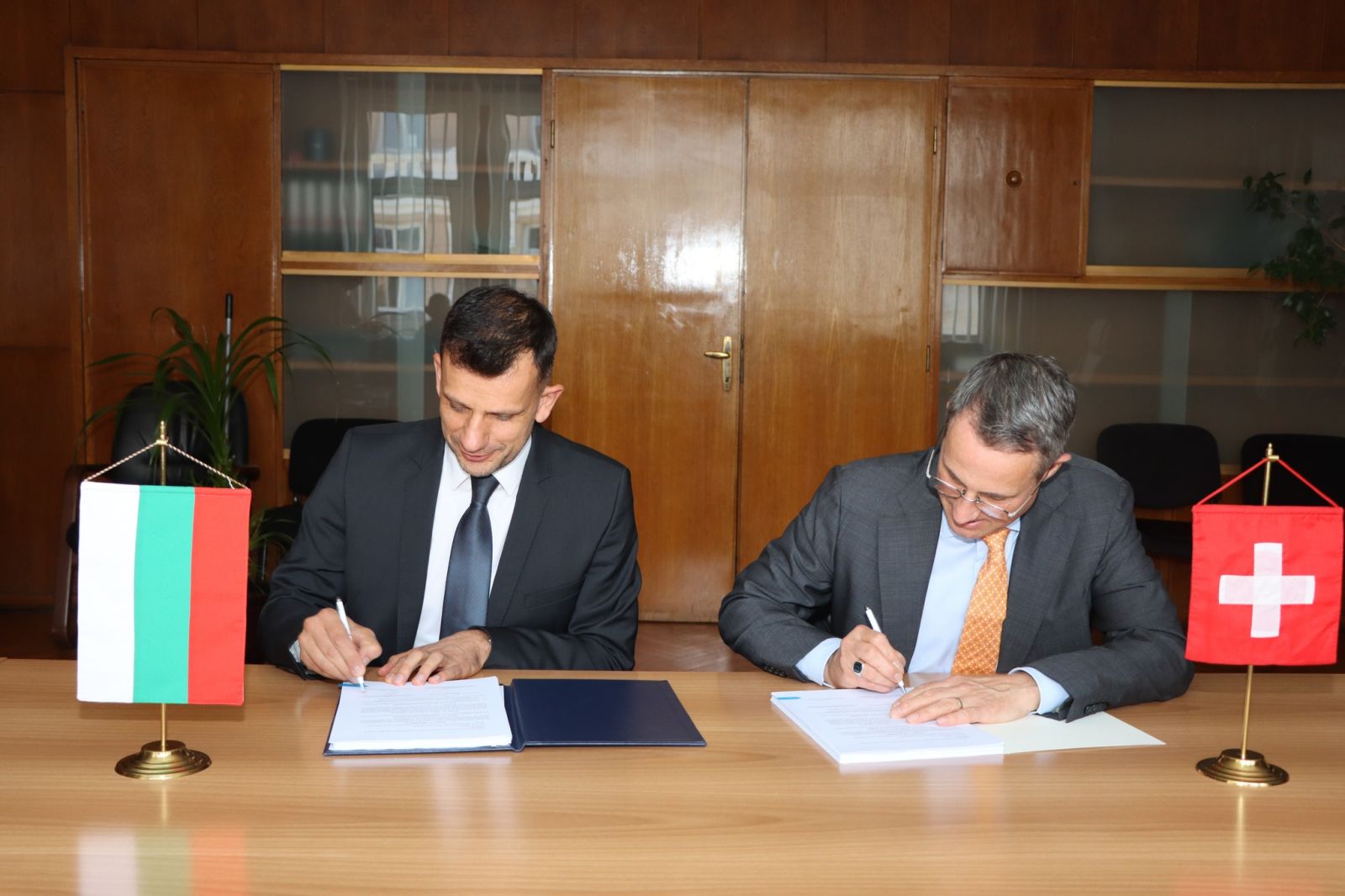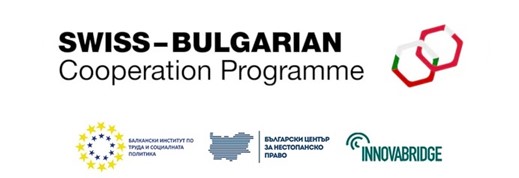SWISS PROGRAM FOR COOPERATION WILL SUPPORT BULGARIAN CSOs IN THE NEXT 5 YEARS IN BULGARIA
Swiss-Bulgarian Civic Engagement and Transparency Facility (CETF) will start to operate from August 1, 2024.
The Civic Engagement and Transparency Facility (CETF) is aimed at strengthening civic participation and open governance in Bulgaria. The core focus of this initiative are civil society organisations, which play a key role in increasing citizens' knowledge of their rights and responsibilities. The overall aim is to get more Bulgarian citizens actively engaged and involved in a more transparent and inclusive public debate on decisions that affect them.
The operator of the second edition of the Swiss-Bulgarian Civic Engagement and Transparency Facility is a consortium of – Balkan Institute for Labour and Social Policy, Bulgarian Centre for Not-for-Profit Law and INNOVABRIDGE that has been selected in a tender procedure.

Mr. Ivan Ivanov, Director of the Central Coordination Unit at the Ministry of Finance and Mr. Thomas Stauffer, Head of the Swiss Cooperation Office, on behalf of the Swiss Agency for Development and Cooperation, sign the Agreement for a Support Measure under the Civic Engagement and Transparency Mechanism. Photo: Swiss-Bulgarian Program for Cooperation
The programme will support associations, foundations and community centres over the next 5 years with CHF 10 million. This will be achieved by strengthening the civil society sector as a key actor in development, balancing the interests of the state, business and society at both local and national levels, thereby contributing to reducing the disparities affecting them.
The program will include three components:
- Capacity building, which will target the capabilities of the CSOs to be accountable, develop their core activities and become autonomous to support their main missions and to self-assess their impact.
- Grant fund with two sub-components (funding lines)
- Civic Empowerment and Engagement (CEE) to contribute to responsive, inclusive, participatory and representative decision making and governance with focus on less developed regions; to promote inclusive societies for sustainable development, build effective, accountable and inclusive institutions at all levels, and to encourage effective public, public-private, cross-sector and civil society partnerships at various local levels.
- Financially Sustainable Civil Sector (FSCS) aims to enhance the fundraising capacity of CSOs and facilitate mission-related business development through a learning-by-doing approach, including support for the development and rolling out of specific fundraising and revenue-generating activities as part of a real-life exercise.
- Lighthouse projects with three specific projects
- A Lighthouse Project (LHP) on management of natural resources and biodiversity aims to enhance cross-sectoral partnerships in the area of sustainable development, fostering a sense of shared responsibility. It leverages local knowledge to ensure that environmentally-friendly policies and practices align with the needs and values of diverse communities.
- A LHP Strategizing the civil space will activate CSOs from across the country to initiate conversations and propose concrete measures key to civil society development. This will include building consensus and advocating for civil society commitment and civic engagement in their communities. As part of this effort, the project will create a model (mechanism) for developing, agreeing on, and endorsing strategic documents through stakeholder participation and engagement.
- A Civic Education LHP aims to effectively support civic initiatives at the grassroots level to boost civic education and ensure national impact. This project will empower small-scale organisations and informal groups outside Sofia to exercise democratic practices and civic engagement, thereby enhancing civic participation on a national scale. Initiatives include practical civic education initiatives as part of education system but not limited only to it, targeted outreach, promotional campaigns, capacity-building workshops, etc.
All these components are crosscutting and complementary in the context of the overall policy dialogue and cooperation between CSOs, authorities and business at local and national level.
.jpg)
Photo: Denislav Stoychev for Civic Alarm Clock 2023, BCNL
During the preparation phase the program operator conducted stakeholders consultation (may 2024). A key conclusion about the environment, in which CSOs operate is that, despite frustrations over the declining intensity of civic participation and the socio-political factors affecting civic space, organisations need opportunities and financial support to participate more actively in decision-making processes. They see themselves as key agents capable of raising important societal issues and engaging people in the process of developing and accepting various policies. A significant threat is that policies are pushed through without adequate discussion or clear communication campaigns. It is essential for local communities to be involved in debates on important public issues and for decisions to be evidence-based, discussed, and communicated clearly.
.jpeg)
Public discussions on Volunteering Act, 2023. Photo: BCNL
Bilateral relations between Switzerland and Bulgaria will be enhanced by transferring Swiss values and approaches towards active citizenship and by building Swiss-Bulgarian partnerships at both project and programme levels.


